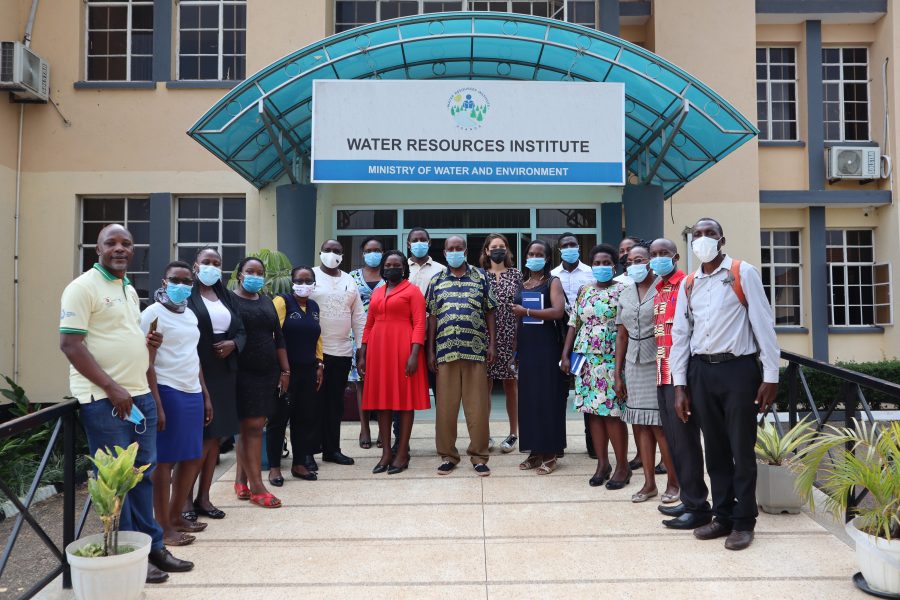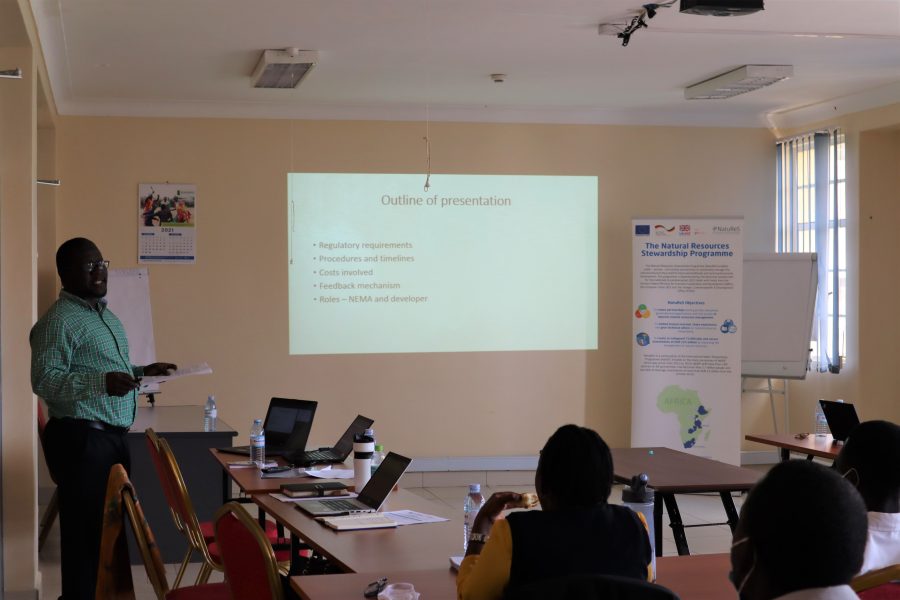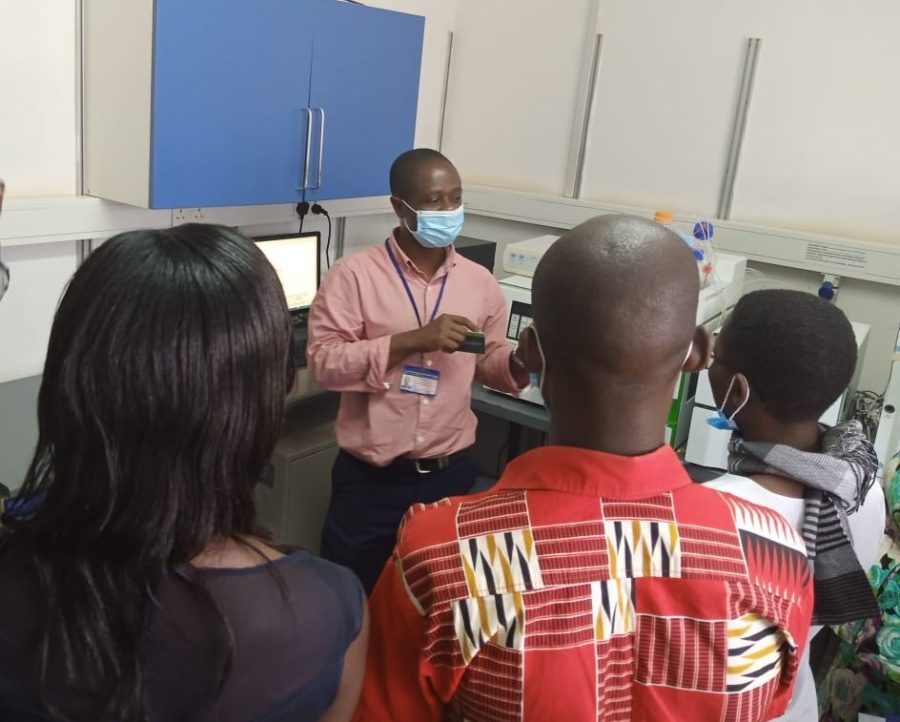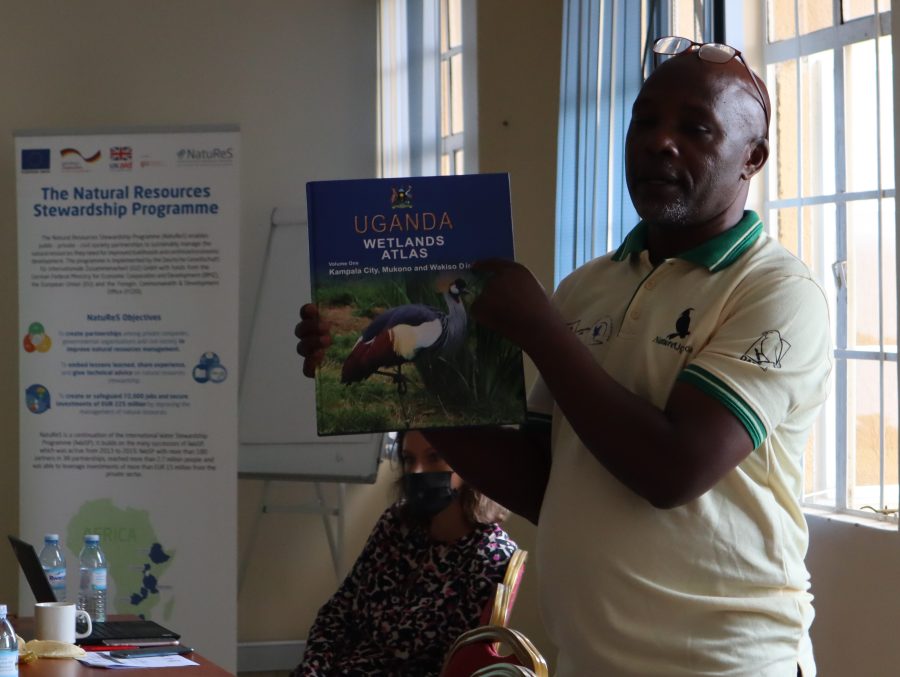Strengthening compliance to Ugandan water and environmental regulations by Commercial Flower Farms
Wetlands in Uganda form a unique ecosystem that supports diverse animal and plant life, and contain, store, and purify large quantities of water flows in the catchments of Lake Victoria basin. However, the basin is experiencing rapid population growth, and destructive anthropogenic activities. Examples are unplanned urban settlements and inappropriate agricultural practices, which are the biggest drivers for the deteriorating water quality and degradation of precious wetland ecosystems in the area. One water-intensive and dependant sector present in the area is the floriculture sector – 13 out of 15 commercial flower farms in the country are located in Greater Kampala Metropolitan Area (GKMA) around the Lake Victoria basin.
Protecting water and wetland ecosystems
The flower industry in Uganda provides employment opportunities, foreign exchange, and domestic revenue to the Ugandan economy. According to the Uganda Flower Exporters Association, the industry’s investments in GKMA are estimated at USD 100 Million, providing about 10,000 jobs to people, of which 80 per cent are women. With the increasing expansion of the industry coupled with rapid population increase around GKMA, the pressure on water and wetland resources has increased. To safeguard the investments of the commercial flower farms, the jobs they provide to the people, and to maintain the ecological functions of the water and wetland ecosystems, there is a need to strengthen collaboration and coordination by the commercial flower farms, the government institutions and non-state actors for sustainable use and management of water and wetland resources in GKMA.

The Commercial Flower Farms Integrated Catchment Management Partnership
The Commercial Flower Farms Integrated Catchment Management Partnership aims at strengthening collaboration between the public, private sector, and non-state actors in the flower industry for sustainable use of natural resources in GKMA. The partners are the Ugandan Ministry of Water and Environment (MWE), the National Environment Management Authority (NEMA), NatureUganda (a conservation organisation) and the Uganda Flower Exporters Association (UFEA) that coordinates and mobilises the 13 commercial flower farms in Greater Kampala. Together, the partners aim at:
- improving the commercial flower farms’ compliance to national water and environmental regulations alongside international standards
- strengthening occupational safety, health and environmental management practices by the flower farms and surrounding communities to foster better working conditions and safeguard jobs
- reducing waste generated from both farms and communities around the wetland systems in the area
- promoting wise use of water and wetland resources around commercial flower farms

Compliance support to the Commercial Flower Farms
On November 16th, 2021, key partners and focal points appointed by the commercial flower farms for this partnership, gathered for a meeting at the Water Resources Institute of the Ministry of Water and Environment. The objective of the meeting was to understand the water and environmental regulatory requirements (including procedures and processes) to be undertaken in acquiring the different water abstraction permits and certificates to operate by the Commercial flower farms
The meeting was also an opportunity for the commercial flower farms focal persons to provide feedback to the government agencies on the current challenges they face in the process of complying with national regulations. The focal persons then visited the Ministry of Water and Environment’s National Water Quality laboratory, a state-of-the-art laboratory for water analysis to learn about the services offered and how they can make use of the laboratory in their compliance activities.

Ensuring compliance to water and environmental regulations
The National Environment Management Authority (NEMA) is mandated to regulate, monitor, supervise and coordinate all activities related to the environment, including the activities of the commercial flower farms. Dr. Jerome Lugumira, the partnership focal person from NEMA, presented the relevant provisions of the National Environment Act 2019, subordinate regulations, standards and guidelines that the flower farms have to comply with. He pledged NEMA’s continued compliance support to the flower farms in order to improve compliance to environment regulations for sustainable use of natural resources in GKMA
Similarly, water regulation through the permit system is one of the core functions of the Directorate of Water Resources Management (DWRM). Ms. Sylvia Nanyunja, the partnership focal person from DWRM gave a presentation on the processes to obtain and renew water permits for surface, ground water and wastewater discharge permits. She highlighted the terms, costs and the procedure to obtain and renew the different permits as provided in the National Water policy and the Water Action Plan.
Referring to the Uganda Wetlands Atlas, covering greater Kampala, Mr. Achilles Byaruhanga (Executive Director of NatureUganda) highlighted NatureUganda’s continued collaboration with the Wetlands Management Department of the Ministry of Water and Environment (Partnership Chair) in promoting wise use of wetlands, their restoration and biodiversity monitoring.

Key take-aways from the meeting
- Regular compliance support needs to be provided to the commercial flower farms to improve environmental and social performance of the commercial flower farms.
- There is a need to improve information flow between the regulatory bodies and the commercial flower farms
- Knowledge sharing on best practices among commercial flower farms should be initiated.
If you want to stay up to date, subscribe to our newsletter or follow us on Twitter.